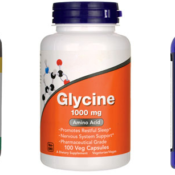
Understanding Methylation: A Crucial Process for Health
Methylation is an essential biochemical process taking place in every cell of our body, significantly impacting our health and well-being. Think of it as a biological traffic light, regulating crucial functions by attaching methyl groups to DNA, proteins, and other molecules. This regulation of gene expression acts like traffic signals, determining when proteins are made or halted.
In addition to controlling gene expression, methylation is crucial for various biological functions, including neurotransmitter production (such as serotonin and dopamine), detoxification, and hormonal balance. Chemically, methylation involves attaching a methyl group—one carbon atom and three hydrogen atoms—to molecules. Methionine, an essential amino acid obtained from our diet, donates these methyl groups.
DNA Methylation Mechanisms
DNA methylation involves adding methyl groups to DNA strands, affecting gene activity. This modification can turn genes off, preventing protein production and playing a vital role in embryonic development, genomic imprinting, and chromosome stability. However, abnormal DNA methylation, like excessive methylation, is associated with conditions such as allergies, autoimmune diseases, and cancer.
Impact on Mental Health
Methylation significantly influences mental health by aiding neurotransmitter production. For example, it helps convert tryptophan into serotonin and supports the transport of dopamine, noradrenaline, and adrenaline. Methylation also facilitates the conversion of serotonin into melatonin, which is essential for regulating sleep patterns. Therefore, proper methylation is crucial for mood stability, emotional balance, and overall brain health.
Factors Affecting Methylation
Several factors can negatively impact methylation. Exposure to environmental toxins, genetic factors, gastrointestinal disorders affecting nutrient absorption, and lifestyle choices—including diet and stress—can all disrupt methylation efficiency. Oxidative stress, resulting from an imbalance between free radicals and antioxidants, also interferes with methylation processes.
Environmental and Dietary Influence
The modern environment introduces various reactive compounds that contribute to oxidative stress, such as pollutants, pesticides, and certain food additives. Diet plays a significant role in methylation: nutrient-rich whole foods, including folic acid (vitamin B9), vitamin B12, and choline, support optimal methylation. In contrast, processed foods and excessive sugar can impede it.
Nutrients Essential for Methylation
- Folic Acid (Vitamin B9): Vital for methylation as it helps produce methyl donors like methionine. A deficiency can impair serotonin production and affect mood.
- Vitamin B12: Necessary for activating folate into its active form (5-methyltetrahydrofolate), which is crucial for methionine production and methylation.
- Choline: Acts as a methyl group donor when folate levels are low, supporting methylation and the conversion of homocysteine.
Testing and Optimization
Laboratory tests measuring serum homocysteine levels can provide insights into methylation status. Genetic testing, such as screening for MTHFR gene mutations, can reveal issues with folate metabolism and methylation challenges. To optimize methylation, focus on dietary improvements, reduce toxin exposure, and address nutrient deficiencies through personalized supplementation.
Taking Control of Health
Understanding methylation empowers you to make informed health decisions. By managing lifestyle factors and nutritional intake, you can support optimal methylation and reduce risks associated with impaired methylation processes.
In summary, while genetics set the foundation, environmental factors—including diet and lifestyle—play a crucial role in determining how genes like MTHFR are expressed. By taking proactive steps, you can enhance methylation efficiency and promote overall health and well-being.




